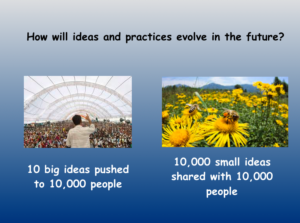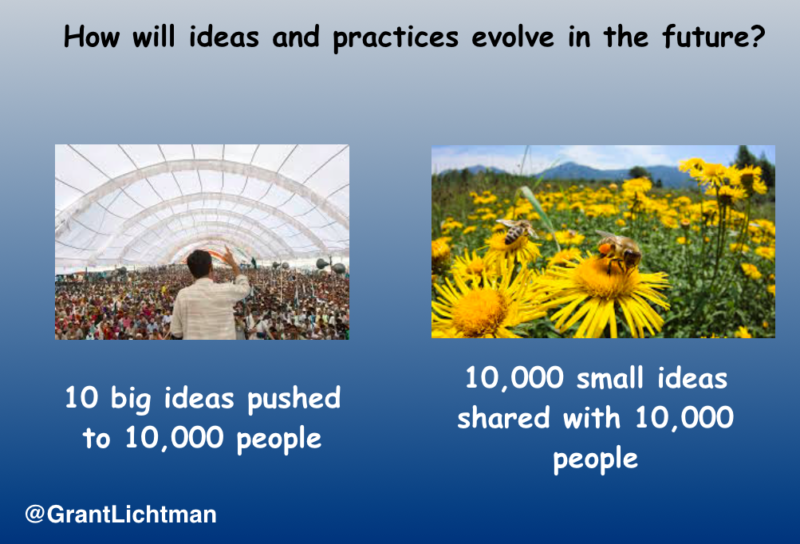Is it a bit stupid to start a post about the inaccuracy of crystal ball predictions by making a prediction? Probably.
I have been saying for some time that we have entered an era of human interaction that is fundamentally different from any time in the past. In the past, big, impactful ideas that drive major societal changes have sourced from a very small number of political, religious, or other social leaders, and spread across the masses. Now and in the future we will increasingly see the impact of many ideas sourced from many people being shared by many others:

It appears there is powerful evidence that a much broader, more diverse approach to predicting the future is almost always more accurate than the forecasts of even the most respected, widely published, or highly paid pundit. In an article in The Atlantic (HT Education ReImagined), David Epstein summarizes the key focus of his book, Why Generalists Triumph in a Specialized World. Studies of predictive accuracies show that the predictions of large groups of people, with broad backgrounds and interests, willing to modify their thinking based on inputs from others in the group, are almost always more accurate than even the most respected gurus in a specific field. As Epstein says,
The best forecasters view their own ideas as hypotheses in need of testing. If they make a bet and lose, they embrace the logic of a loss just as they would the reinforcement of a win. This is called, in a word, learning.
What is the big takeaway for school leaders? Leverage the power of your entire community. Find ways to engage many stakeholders in imaging a best future for your school. A small group, even those who we think of as the best and brightest, almost never have the right answer of what that future will or should look like. This principle lies at the heart of my own new book, Thrive: How Schools Will Win the Education Revolution. Schools need to increasingly shift from places of telling to places of learning, and this is not a classroom-only shift. The more we engage broad groups of stakeholders in a process of co-imagining, co-designing, and co-building the learning process, the better the chance that our solutions will be “right” for the challenges of a rapidly changing world.
And if you think that prediction is wrong, tell me, so I can adjust my thinking!












Leave A Comment